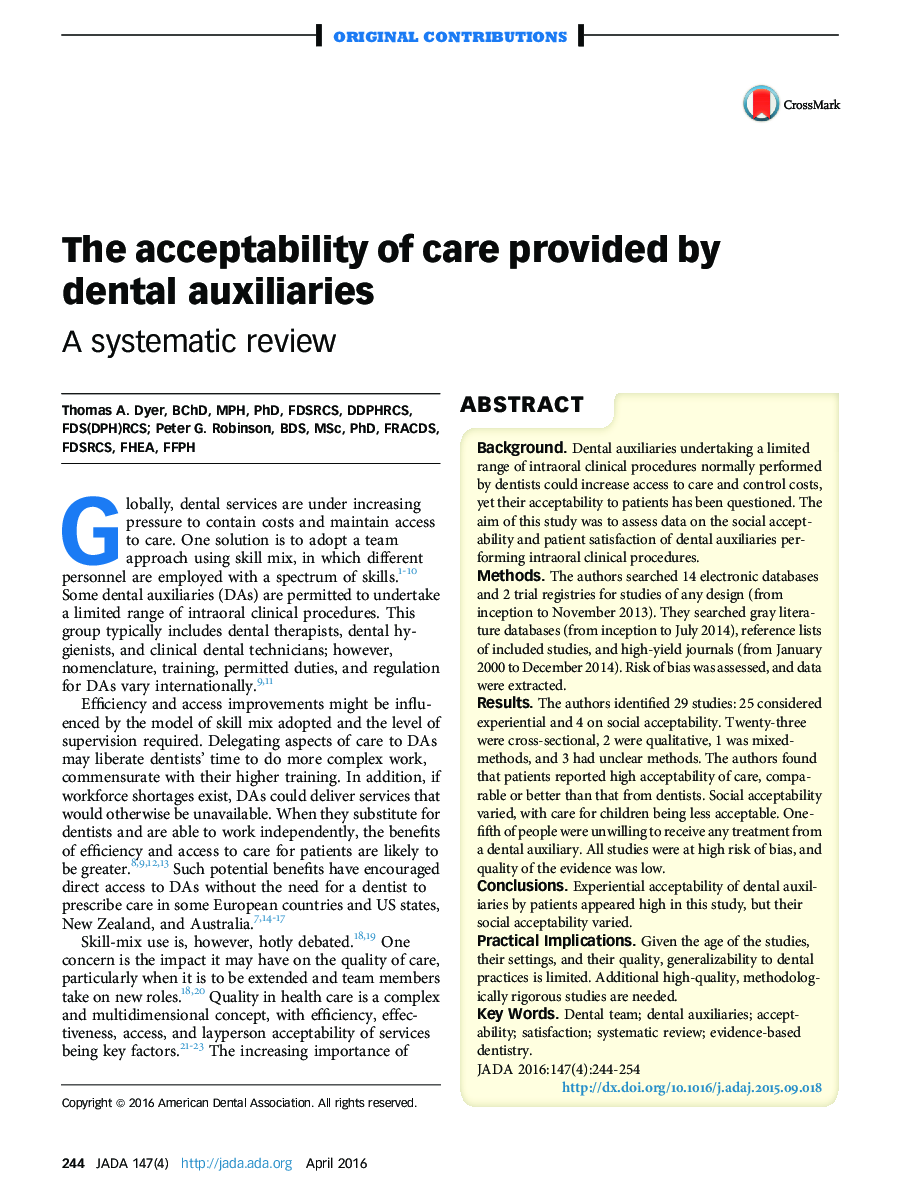| Article ID | Journal | Published Year | Pages | File Type |
|---|---|---|---|---|
| 3136358 | The Journal of the American Dental Association | 2016 | 11 Pages |
BackgroundDental auxiliaries undertaking a limited range of intraoral clinical procedures normally performed by dentists could increase access to care and control costs, yet their acceptability to patients has been questioned. The aim of this study was to assess data on the social acceptability and patient satisfaction of dental auxiliaries performing intraoral clinical procedures.MethodsThe authors searched 14 electronic databases and 2 trial registries for studies of any design (from inception to November 2013). They searched gray literature databases (from inception to July 2014), reference lists of included studies, and high-yield journals (from January 2000 to December 2014). Risk of bias was assessed, and data were extracted.ResultsThe authors identified 29 studies: 25 considered experiential and 4 on social acceptability. Twenty-three were cross-sectional, 2 were qualitative, 1 was mixed-methods, and 3 had unclear methods. The authors found that patients reported high acceptability of care, comparable or better than that from dentists. Social acceptability varied, with care for children being less acceptable. One-fifth of people were unwilling to receive any treatment from a dental auxiliary. All studies were at high risk of bias, and quality of the evidence was low.ConclusionsExperiential acceptability of dental auxiliaries by patients appeared high in this study, but their social acceptability varied.Practical ImplicationsGiven the age of the studies, their settings, and their quality, generalizability to dental practices is limited. Additional high-quality, methodologically rigorous studies are needed.
